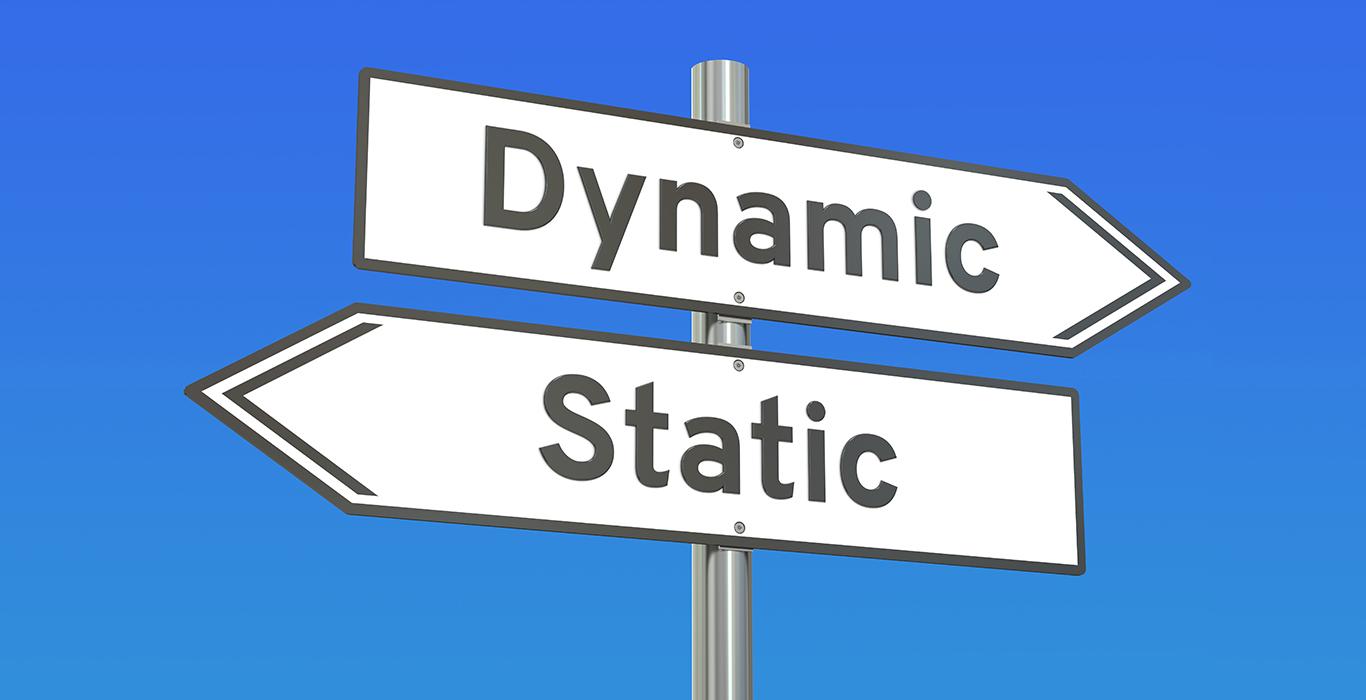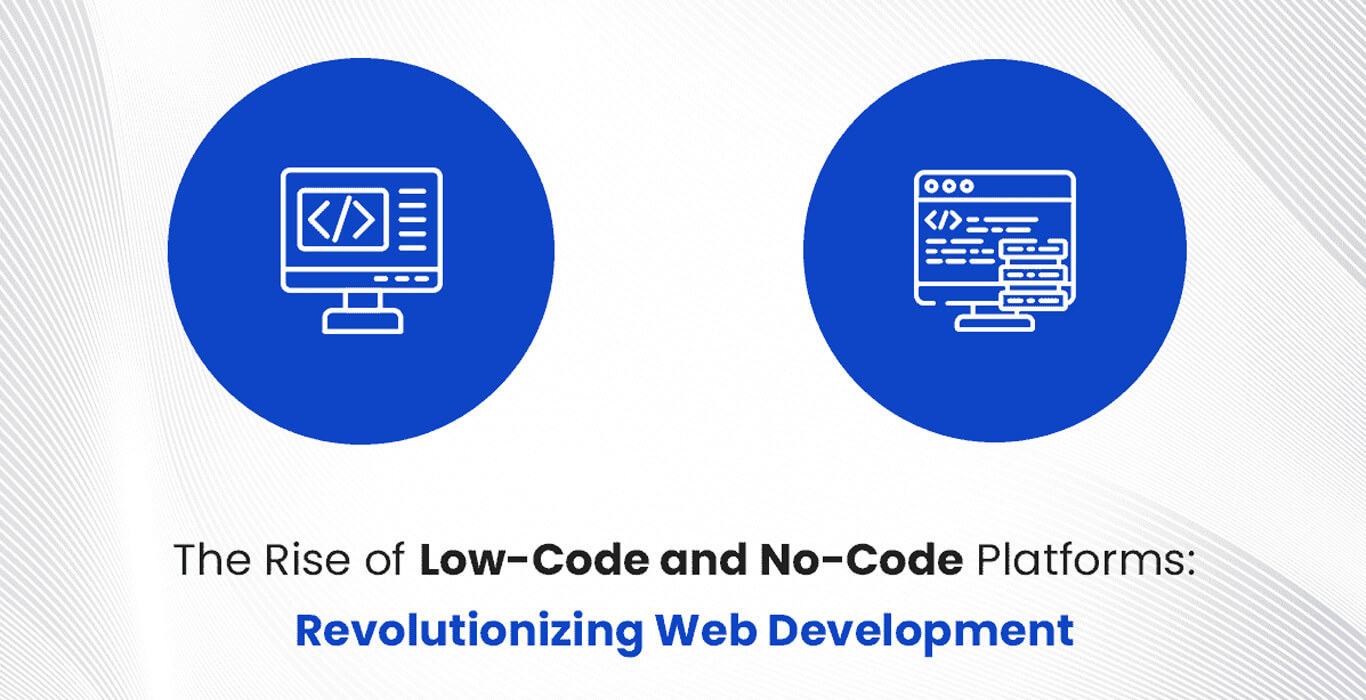“Good design is like a refrigerator—when it works, no one notices, but when it doesn’t, it sure stinks.” – Irene Au
When it comes to designing and developing a website, one of the key decisions you have to make is whether to go for a static or dynamic website. Both have their pros and cons, and the choice ultimately depends on your business needs and goals.
Let’s dive into the pros and cons of static and dynamic websites, and how they impact web design, web development, and digital marketing.

Static Websites
Static websites are composed of a fixed set of web pages that are delivered to the user exactly as stored on the server. They typically consist of HTML, CSS, and JavaScript files and do not rely on server-side scripting languages.
Pros:
- Simple and Fast: Static websites are lightweight and fast to load, which makes them an ideal choice for smaller businesses or personal websites with low traffic.
- Secure: Static websites are more secure than dynamic websites because they don’t require server-side scripting languages, which are often targets of hackers.
- Easy to Deploy: Static websites are easy to deploy because there are no databases or server-side languages to configure. You simply upload the files to the server, and the site is ready to go.
Cons:
WordPress is an open-source platform that offers a wide range of features that make it easy to use and customise. Here’s why the migration from Joomla to WordPress is advisable!
- Limited Functionality: Static websites lack the dynamic functionality of their dynamic counterparts, such as user interaction and personalization.
- Difficult to Maintain: Making changes to a static website requires manual coding, which can be time-consuming and requires web development skills.
Dynamic Websites
Dynamic websites use server-side scripting languages like PHP, Python, etc., to generate web pages on-the-fly. The content of the website is stored in a database, and each time a user requests a page, the server retrieves the content and generates the HTML code.
Pros:
- More Functionality: Dynamic websites are more versatile and can offer more dynamic functionality, such as user registration, commenting, and search functionality.
- Easy to Update: Dynamic websites are easy to update because the content is stored in a database, which can be accessed and edited through a web interface or CMS.
- Scalable: Dynamic websites can handle a high volume of traffic and are more scalable than static websites.
Cons:
- Slower: Dynamic websites require server-side processing, which can slow down load times, especially during peak traffic periods.
- Security Issues: Dynamic websites are more vulnerable to security issues because they rely on server-side scripting languages, which are often targets of hackers.
- More Expensive: Dynamic websites require more development time and expertise, which can make them more expensive to build and maintain.
Impact on Web Design
The choice between static and dynamic websites can also impact web design. Static websites tend to be simpler and more straightforward, with fewer design elements and a focus on functionality over aesthetics.
Dynamic websites can offer more design flexibility and customisation options, making them ideal for businesses that want to create a unique and engaging user experience.

Impact on Web Development
The choice between static and dynamic websites can also impact web development. Static websites require less development time and expertise, which can make them more cost-effective for businesses on a tight budget.
Dynamic websites require more development time and expertise, which can make them more expensive to build and maintain.
Impact on Digital Marketing
The choice between static and dynamic websites can also impact digital marketing. Dynamic websites offer more options for SEO optimisation, such as the ability to dynamically generate meta tags and keywords based on the content of the page. They also allow for more sophisticated tracking and analytics, which can help businesses optimise their digital marketing campaigns and improve their ROI.
However, static websites can still be optimised for SEO and can benefit from basic digital marketing strategies such as social media marketing and email marketing.
Which One to Choose?
Ultimately, the choice between static and dynamic websites depends on your business needs and goals. If you have a small business with a limited budget and simple website requirements, a static website might be the best option. But if you have a larger business with more complex website requirements, a dynamic website might be the best choice.
You also need to consider factors such as website speed, security, scalability, maintenance, and development costs when making your decision. These factors can vary depending on your industry, audience, and website goals, so it’s important to consult with web design and development professionals to determine the best option for your business.
If you’re looking for a reliable web development company in Pune, look no further than IKF. Our team of experts is dedicated to creating custom websites that meet your unique business needs and help you achieve your online goals.
Contact us today to learn more about how we can help take your online presence to the next level with our professional web design and development services.

Ashish Dalia is the CEO & Chief Digital Marketing Strategist at I Knowledge Factory Pvt. Ltd.

Ashish Dalia is the CEO & Chief Digital Marketing Strategist at I Knowledge Factory Pvt. Ltd.











